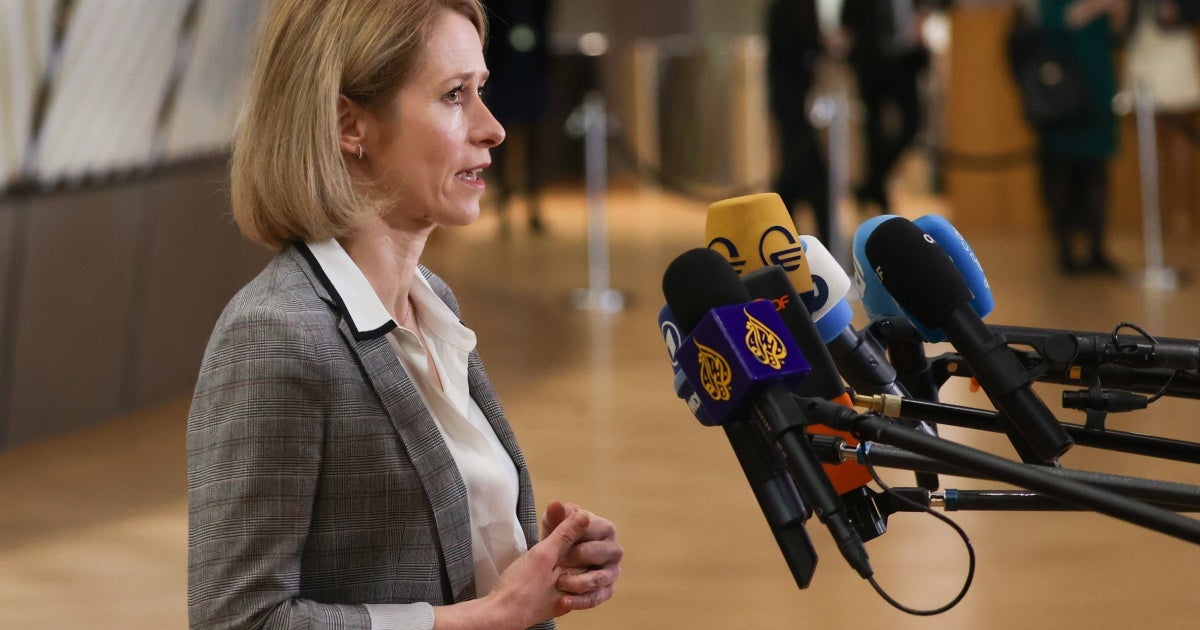
EU Urged to Suspend Israel Trade Pact
The European Union should immediately suspend its trade agreement with Israel as long as Israel’s atrocity crimes persist, Human Rights Watch and over 110 organizations and trade unions said in a joint statement on June 19, 2025. This would be the first measure taken by the EU in the last two years to ensure some accountability for Israeli authorities’ egregious abuses of Palestinians.
EU foreign ministers are expected to discuss the EU-Israel Association Agreement on June 23, when they will receive an assessment of Israel’s compliance with article 2 of the agreement, which qualifies “respect for human rights and democratic principles” in “internal and international policy” as an “essential element” of the agreement. The review was initiated on May 20, when 17 out of 27 EU foreign ministers supported a proposal by the Dutch government. The EU is Israel’s biggest trading partner and suspending the trade pillar of the agreement would reinstate tariffs on bilateral trade.
“As parties to the Genocide Convention, all EU states are bound to ’employ all reasonable means’ to stop Israeli atrocities, but, instead, many EU states have stood by, quiet and at risk of complicity,” said Claudio Francavilla, acting EU director at Human Rights Watch. “EU foreign ministers shouldn’t let the escalating hostilities between Israel and Iran take focus away from the ongoing extermination and apartheid against the Palestinians; they should suspend the trade pillar of the EU-Israel Association Agreement without further delay.”
Review of the EU-Israel agreement is taking place as Israeli authorities continue their military operations in Gaza, during which they have committed war crimes, crimes against humanity, and acts of genocide. Israeli authorities have also flouted three binding orders by the International Court of Justice (ICJ) in a case brought by South Africa alleging that Israel is violating the Genocide Convention. The court’s measures included requiring Israel to prevent genocide against Palestinians in Gaza, enable the provision of basic services and humanitarian assistance, and prevent and punish incitement to commit genocide.
Human Rights Watch has long called on states to use their leverage to press Israel to halt its abuses and comply with the ICJ’s orders. As parties to the UN Genocide Convention, all EU member states have an obligation to “employ all means reasonably available to them, so as to prevent genocide so far as possible.” That obligation arises as soon as a state learns, or should normally have learned, of a serious risk that genocide may be committed. A definitive determination that genocide is already underway is not required, as Human Rights Watch set out in an April 2025 intervention challenging the UK government’s continued licensing of military equipment used by Israeli forces in Gaza.
The capacity of a state to influence the actors at risk of committing genocide weigh substantially on how courts assess their international responsibility for failing to prevent genocide. This includes factors such as geographic proximity, political and other links, and the means available to the state to exert influence. When considering this responsibility, the ICJ has held that states that have “means likely to have a deterrent effect on those suspected of preparing genocide, or reasonably suspected of harboring specific intent” are “under a duty to make such use of these means.”
Israeli authorities have also failed to comply with the obligations from a landmark July 2024 ICJ advisory opinion, and in a September 2024 UN General Assembly resolution largely endorsing its content. The ICJ found Israel’s occupation of the Occupied Palestinian Territory to be illegal and marred by serious abuses – including apartheid and racial segregation – and said that it should be dismantled, along with Israel’s illegal settlements. A March 2025 report by the Office of the UN High Commissioner for Human Rights documented a significant expansion of Israeli settlements in the West Bank, where Israeli forces have ratcheted up repression, displacing tens of thousands of Palestinians at a scale not seen there since 1967 and killing over 930 since October 2023.
In its advisory opinion, the ICJ also referenced the obligation of all states parties to the Fourth Geneva Convention – including all EU member states – “to ensure compliance by Israel with international humanitarian law as embodied in that Convention.” The advisory opinion also said that states should take steps to prevent trade relations that “assist in the maintenance of the illegal situation created by Israel” in the occupied territories, including with relation to “economic or trade dealings.”
Yet, amid sharp divisions, the EU has not adopted any measure to pressure Israeli authorities to comply with the laws of war and prevent genocide.
Unlike measures that require unanimity – such as targeted sanctions, an EU-wide arms embargo, or the suspension of the whole EU-Israel Association Agreement – the suspension of the agreement’s trade pillar would require the support of a qualified majority of EU member states. The suspension, first requested by Spain and Ireland in February 2024, would not result in a complete trade ban but would reinstate tariffs on bilateral trade.
In November, EU foreign ministers received a (recently leaked) report by the then-EU special representative for human rights, Olof Skoog, compiling findings by independent UN bodies and international courts on Israel’s abuses throughout the occupied territory. Shortly afterward, the International Criminal Court issued arrest warrants against Israel’s prime minister, Benjamin Netanyahu, and former defense minister, Yoav Gallant, as well as a Hamas leader who has since been killed.
At that time, EU foreign ministers could have taken concrete measures, such as a review of the EU-Israel Association Agreement. Instead, they reconvened an official meeting of the EU-Israel Association Council with their Israeli counterpart, Gideon Sa’ar.
During that meeting, held in February amid a fragile ceasefire in Gaza, the EU said the Israeli government should take a number of actions, including implementing the ICJ binding orders to allow unhindered provision of humanitarian aid at scale throughout Gaza and ending Israel’s illegal settlement policy in the West Bank. Israeli authorities defied those calls, and instead imposed a total siege on Gaza and approved new West Bank settlements.
A UN conference on a two-state solution and Middle East peace, set to be held from June 17-20, was postponed due to the ongoing hostilities between Israel and Iran. In a June 5 letter, Human Rights Watch urged EU member states to use the conference as an opportunity to move beyond repeated affirmations of support for human rights and international law, and toward concrete, time-bound measures – such as suspending arms transfers and bilateral deals and banning trade with settlements – to ensure their enforcement.
In fact, with the exception of notable initiatives by individual member states and targeted sanctions against some violent Israeli settlers, EU action has largely been paralyzed by the European Commission’s reluctance and opposition by a core group of governments – chiefly Hungary, the Czech Republic, Germany, Italy, and Austria, but also Greece, Cyprus, Croatia, Lithuania, Bulgaria, and Romania – creating a sense of impunity among Israeli authorities.
The ongoing review of the Association Agreement is the closest the EU has come to holding Israeli authorities to account; however, the review will have little practical effect if not followed by the suspension of the trade pillar, Human Rights Watch said.
“For nearly 21 months now, the EU has watched escalating atrocities against Palestinians without taking any real measure to uphold international law,” Francavilla said. “Reviewing and suspending the agreement is a chance for the bloc to salvage what’s left of the credibility of its commitment to human rights and international law, and to finally take action to respond to Israeli authorities ongoing acts of genocide.”
https://www.hrw.org/news/2025/06/20/eu-suspend-trade-agreement-with-israel

